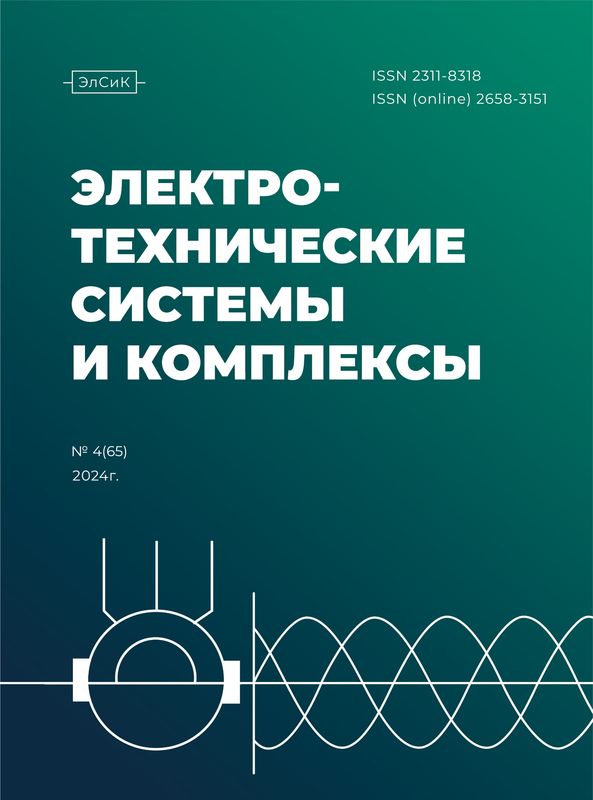Abstract
The paper presents an approach that provides the possibility of identifying nonlinear dependencies of energy consumption of an industrial robot, which is part of an automated technological process, through the use of neuro-fuzzy models. The research group experimentally confirmed the presence of significant differences in the values of the average power consumption of the robot depending on the state of its axes, which, in turn, determines the potential for energy saving when implementing the possibility of choosing the least energy-consuming zones of the robot working area when forming the control program. A complex measurement procedure was performed and a data array of instantaneous power values and corresponding coordinate values was formed. On the basis of a training sample, using the tools of neuro-fuzzy systems, a model of energy consumption of an industrial robot was formed, which allows predicting energy costs when executing a specific control program of the technological process. The parameters of the resulting neuro-fuzzy system and the algorithms implemented in its subsystems are described in detail. Based on the results of representative testing of the model in the entire working area of the industrial robot and correlation with data obtained from measuring devices, the experiment demonstrated the possibility of a significant reduction in energy costs in the range of 7 – 15 %. The ways of integrating the proposed management tools into the production processes of an industrial enterprise are outlined and the tasks of prospective research are defined.
Keywords
Automation, robotics, energy saving, robotic processes, optimization, management.
1. Chemnitz M., Schreck G., Kruger J. Analyzing energy consumption of industrial robots. Emerging Technologies and Factory Automation, 2011, pp. 8-13.
2. Siar M.V.S., Fakharian A. Energy efficiency in the robot arm using genetic algorithm. 8th Conference of AI & Robotics and 10th RoboCup Iranopen International Symposium (IRANOPEN), 2018, pp. 14-20.
3. Efimov A. Y., Gorkavyy M.A. On the issue of creating an intelligent forecasting system and optimize the energy costs of the robotic site. Proizvodstvennye tehnologii budushhego: ot sozdanija k vnedreniju [Production technologies of the future: from creation to implementation], 2017, pp. 14-20. (In Russian)
4. Efimov A. Y., Gorkavyy M.A. Conceptual analysis of optimization directions of robotic technological processes. Gagarinskie Chteniya – 2018 [Gagarin's readings – 2018], 2018, pp. 311-312. (In Russian)
5. Gorkavyy М.А., Efimov A.Y., Soloviev V.A., Solovev D.B. Algorithmization and Principles of Construction of Information Support of the Automated Module for Energy Outlays Optimization of Technological Processes at Robotized Productions. 2018 International Multi-Conference on Industrial Engineering and Modern Technologies, 2018, pp. 1-4.
6. Gorkavyy М.А., Efimov A.Y., Gudim A.S., Solovev D.B. Intelligent System for Prognostication and Optimization of Power Expenses of Technological Processes at Robotized Productions. 2018 International Multi-Conference on Industrial Engineering and Modern Technologies, 2018, pp. 1-4.
7. Mahdavian M., Shariat-Panahi M., Yousefi-Koma A., Ghasemi-Toudeshki A. Optimal trajectory generation for energy consumption minimization and moving obstacle avoidance of a 4DOF robot arm. 3rd RSI International Conference on Robotics and Mechatronics (ICROM), 2015, pp. 353-358.
8. Feng L., Ulutan D., Mears L. Energy consumption modeling and analyses in automotive manufacturing final assembly process. IEEE Conference on Technologies for Sustainability (SusTech), 2015, pp. 224-228.
9. Gao M., Ding P., Yang Y. Time-Optimal Trajectory Planning of Industrial Robots Based on Particle Swarm Optimization. Fifth International Conference on Instrumentation and Measurement, Computer, Communication and Control (IMCCC), 2015, pp. 1934-1939.
10. Zheng X., Zheng Y., Shuai Y., Yang Y., Tian Y. IEEE 3rd Information Technology, Networking, Electronic and Automation Control Conference (ITNEC), 2019, pp. 1749-1754.
11. Zaychenko I.V. Razrabotka i issledovanie nechetkih sistem upravlenija slozhnymi obektami. Kand. Diss. [Development and research of fuzzy control systems for complex mobile objects. Ph.D. Diss.]. Komsomolsk – on – Amur, 2011.
12. Trusov R. E., Gorkavyy M. A., Soloviev V. A. Development of the principle of fuzzy hierarchical output of automated control modules for production processes of electric grid companies. Informatika i sistemy upravlenia [Informatics and control systems], 2017, No. 3 (53). P. 96-108. (In Russian)
13. Gorkavyy M. A., Modeli, metody i sredstva upravlenija i integrirovannoy informatsionnoy podderzhki proizvodstvennyh processov predprijatija metallurgicheskoy otrasli. Kand. Diss. [Models, methods and means of management and integrated information support of production processes in the metallurgical industry. Ph.D. Diss.]. Komsomolsk-on-Amur, 2010.
14. Egorova V.P., Gorkavyy M.A., Efimov A. Y., Solovev D.B. Synthesis of an Adaptive System for Diagnosing the Quality of Automated Welding Products. International Multi-Conference on Industrial Engineering and Modern Technologies (FarEastCon), 2019, pp.1-4.
15. Efimov A.Y., Gorkavyy M.A., Gorkavyy A.I., Solovev D.B. Improving the Efficiency of Automated Precision Robotics-Enabled Positioning and Welding. International Science and Technology Conference (EastConf), 2019.










